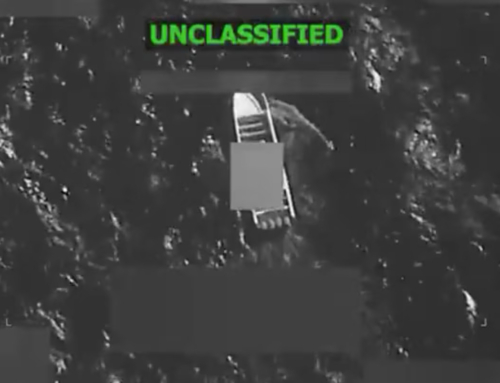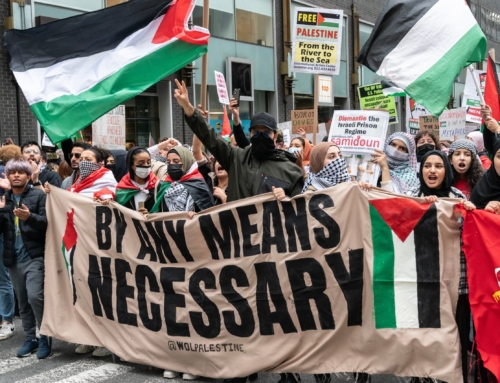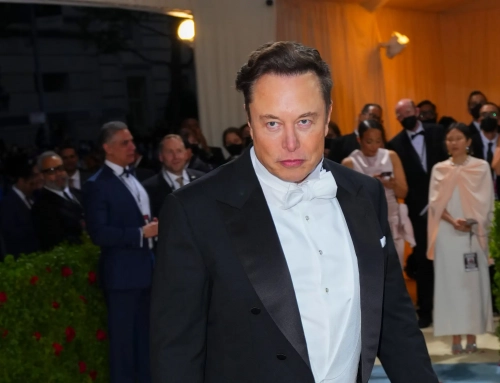Syria is turning into a quagmire, and for once, it isn’t the United States that’s stuck in the mud. Surprisingly, it’s the mighty Resistance of the Middle East. Hezbollah.
In 2000, Hezbollah was hailed as the Arabic version of David, fighting off the Goliath of the hated Israel and forcing them to flee from Lebanon. The Arab world cheered the departure. In 2006, Israel came back and fought a sharp, short war with Hezbollah, and pretty much had their ass handed to them on the propaganda front. While the numbers were extremely lopsided with respect the casualties, in truth, in order to win, all Hezbollah had to do was not lose. Which is exactly what they did. Once again, the Arab world saluted them as heroes.
My, how times have changed.
Syria has been Hezbollah’s ally since its inception, giving them arms, money, and political cover. In return, Hezbollah has supported the Assad regime through thick and thin, going so far as to assassinate those who disagreed with Syria’s approach to Lebanon. The support has been mutual and lockstep, but it’s now causing a little bit of a problem.
When the Arab Spring began in Egypt, Nasrallah, the head of Hezbollah, was the first in line cheering on the protesters. He kept up the drumbeat of support right up until Mubarak fell. When the spring spread to Syria, he grew silent. Probably sitting in a back room – much like any other politician in the world dealing with a crisis – wondering how to spin the story. The Arab world scratched its head. How could The Resistance cheer on the fall of one dictator but not another?
As the Syrian war slogged on, Hezbollah went from silence to limited support, vocally stating that the insurrection against Assad was fomented by “western” interests. Following this, they felt the first chink in their propaganda armor. Hamas, a Sunni terrorist group, ignored Hezbollah’s proclamations, sided with the rebels and called on all Jihadists to take it to Assad. A significant turn of events that barely made a ripple here in the US, Syria had been Hamas’ protector as well, and Hezbollah had been a Hamas ally, with both focused on the destruction of Israel. Now they are on opposite sides of the fence, and it didn’t make Nasrallah happy. Hezbollah answered Hamas’s call to arms by ordering them to leave Lebanon, which didn’t really fit in with their proclamation of being The Resistance. The heroes’ shining mantle was getting tarnished.
The Syrian civil war continued, and Assad grew more vicious, yet the rebels would not quit. Hezbollah went from vocal support to actually joining the battle, sending fighters to help Assad crush the rebellion. Nasrallah personally came out and said that Hezbollah would fight to the death, vowing victory for Assad. At first working in secret, Hezbollah had now openly chosen sides. And the Arab world answered.
Last week, the foreign minister of Bahrain, a moderate Arab country, called Nasrallah – the leader of Hezbollah – a terrorist. Think of that. An Arab country called the leader of THE RESISTANCE, a man that had been cheered as a savior in 2006, a TERRORIST. When I read that, I just about fell out of my chair. Yes, I understand there’s more at play here (Bahrain is a predominately Shia country ruled by Sunnis, and the monarchy has grown sick of Iran and Hezbollah messing with its little island), but still, it is significant.
Right after this, Turkey, another moderate Muslim country, said that Hezbollah – which directly translated means the “Party of God” – should change its name to the Party of Satan. Yes, you read that right. Turkey said Hezbollah should be called Satan. Once again, the statement is pretty incredible, and it must be making Nasrallah wonder what the hell happened to his shining armor.
There’s a new cold war happening in the Middle East between Sunni and Shia, with the Kingdom of Saudi Arabia on one side and Iran on the other. Both want to be viewed as the leader of the Arab world, and Syria has become a fault line in the battlefield. If Syria has shown us anything, it’s that there is no monolithic Arab identity. Just as in America, all politics is local, and each Arab entity decides on its course of action based on what will help it the most. Nobody is more surprised by this than Hezbollah. The terrorist group expected its old mantle of The Resistance to matter, and that others would follow its lead just because it said so. Much to Hezbollah’s surprise, the goodwill and political capital it had gained in its fight against Israel evaporated as quickly as snow in the Sahara.
And in the Sunni Arab world, Hezbollah went from Hero to Zero just as fast.










Thank you for this explanation, sometimes it helps to have someone who understands all the different players, to just give a simple basic explanation.
I have been thinking for some time on this issue of Syria and the Sunni/Shia – Saudi/Iran powerplay and it would play out. Iraq is still a battle ground as well…It reminds me, as you mention, of the cold war and how the East/West struggle played out on the battlefields in far a way contries.
I would ask you this, the US has only local friends in the area. There is no pan-Sunni or pan-Shia relationship with the US. This makes it difficult to choose sides for US intervention on any level. Are we better to aid our local allies for their protection, aligned our selves with the Sunni rebels or stay completely out of the picture? (The answer would also have to take into account the overall balance between super-poweresque players in the region like Russia). Thoughts?
It’s my belief that whatever form of government exists in Syria, it will be antithetical to US interests. Assad stays, he hates us and leverages Hezbollah and Iran to cause us problems. Assad goes and the government that supersedes him will be – if not an overt theocracy founded on Sharia law – a fundamentalist Islamic one that will be against us. It won’t matter how many weapons we give the rebels or how we support them, that will be forgotten in the instant they succeed. Worse, any government that follows Assad will take years to consolidate power, and the country will be a mess for a long, long time. There are many, many fragmented elements fighting right now, all united AGAINST Assad. None united WITH any certain ideology. All of those groups will claim to be the reason for victory, and the minute Assad is gone, any thought of unity will fly out the window as they start fighting each other. Worst case, it’s a failed state like Somalia – which Hezbollah and Iran will work hard to ensure. Best case, it’s a token government with little control over the various militias, like what’s going on in Libya currently.
Honestly, if I were to make a decision based on United States interests, I’d say let Assad win. Note, I didn’t say HELP him win. I said let him. In no way do we want our fingerprints anywhere near helping him out, but him in power is probably what would be best for our interests. Let Hezbollah, Russia, and Iran be the bad guys. I know I’ll get barbecued as some heinous baby killer with that statement, but there are no good answers. In no way will the US do anything to stabilize the country after he’s gone – as we’ve seen in our own national security documents and on the ground in Libya – so it’s going to be a mess. We arm the rebels and sure as I’m typing, we’ll walk away when the aftermath comes. I can’t see the country going anywhere but south into a sectarian and ideological bloodbath when that occurs, with repercussions following into neighboring countries.
Please correct me if I’m mistaken, but I would not be surprised at all if the the very same individuals who were part of the assault on the American Consulate in Benghazi are in Syria right now, fighting alongside the rebels against Assad’s regime.
Would’nt arming them do a whole lot more harm than good in the long-run ? Would we really want them to get their hands on any of Assad’s Chemical Weapons, or any other WMD ? The conflict in Syria boils down to choosing the lesser evil, unfortunately.
I have read that there are over a billion Muslims, the religion of peace. Where are their voices? I keep hearing that they are a peaceful lot but yet they allow the supposed minority to speak for them all. I spent 4 months cleaning up the WTC and until I hear different that’s all I need to know about Islam.